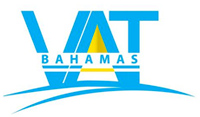|

|
 |
|
Last Updated: Feb 13, 2017 - 1:45:37 AM |
 The public's attention is being drawn to several important revenue reforms approved by Parliament during the 2015/2016 Budget Debate. These mainly affect the revenue collections that fall under Ministry of Finance agencies and include Customs Duties and Excise Taxes, Stamp Taxes, Value Added Tax (VAT), Real Property Taxes and Business License. The legislative changes also affect procedures that government ministries, departments and public corporations must observe when they do business with the private sector. The public's attention is being drawn to several important revenue reforms approved by Parliament during the 2015/2016 Budget Debate. These mainly affect the revenue collections that fall under Ministry of Finance agencies and include Customs Duties and Excise Taxes, Stamp Taxes, Value Added Tax (VAT), Real Property Taxes and Business License. The legislative changes also affect procedures that government ministries, departments and public corporations must observe when they do business with the private sector.
CRA
As a general note, significant progress has been made on the consolidation of revenue administration. The CRA, combining the VAT, Business License and Real Property Taxes will be established shortly. The operations facilities are now ready for occupancy, and its staff will assemble by early fall.
Customs Reforms
Additional Customs Duty reductions are now in effect for certain consumer items, taking advantage of the revenue growth that has been achieved with the introduction of VAT. The reductions also benefit imports of certain medical equipment, products sold by straw vendors, and equipment used by taxi cab operators.
A new benefit which the Customs Department will administer is duty free allowance for returning residents, particularly students, who have lived abroad for at least two years. They will be allowed to bring home up to $10,000 worth of personal belongings, on a duty free basis as well as one automobile. Exemptions are already provided for such personal effects under VAT.
As of September 1st, Customs Department officials will begin enforcing a ban on imports of wrecked vehicles (with non-rebuildable titles) and on general imports of vehicles over 10-years of age. Those who wish to import special vintage vehicles and antiques will still be able to do so after being given approval from the Minister of Finance. The extra two months before these bans take effect are to give individuals who have already purchased such items enough time for their shipments to arrive to The Bahamas.
VAT
For real estate conveyances, the Stamp Tax is now uniformly set at a lower rate of 2.5 per cent. VAT will be charged on property sales and transfers, whenever the value of the transfer exceeds $100,000. Those whose conveyances of properties are valued at under $100,000 will benefit from exemption from VAT.
There will be questions about how VAT Rules will be assessed and collected on property. Only the VAT Comptroller can collect the tax. Attorneys, realtors, banks, and individual sellers of property will have to present each conveyance to the VAT Department. There, each transaction will be certified as exempt or taxable. These documents will be stamped and a VAT receipt or VAT invoice issued. Only after this step is completed can the documents be presented to the Treasurer for processing under the Stamp Act. Evidence that both VAT and Stamp Tax has been paid will be required before any transfer of title can be recorded at the Registrar General's Department.
The VAT Department is issuing interim rules for real estate conveyances that will be in effect for 60 days. During this period public commentary on the rules will be invited. In the interim the public should not experience any significant difference between the administration of the VAT and Stamp Act as regard conveyances.
In the meantime, the public should be advised that the VAT Department will also issue rules for those selected business registrants that will have to make monthly VAT payments, even though they continue to file quarterly or semi-annual returns. Rules will also be issued to outline the requirements for medium and larger business that will be required to submit electronic listing of transactions with other VAT registrants.
TAX Compliance Certificate
The Tax Compliance Certificate requirement comes into effect on July 1, 2015. The Financial Administration and Audit Act now prohibits all sectors of the government (including public) corporations from acquiring goods and services from suppliers who are not current with their tax obligations. This includes VAT, customs duties and levies, business license, property tax, road traffic, immigration fees and National Insurance contribution. The Tax Compliance Certificate will be issued on behalf of the Financial Secretary, through the Department of Inland Revenue/CRA.
Property Taxes
As regard Real Property Taxes, residential property owners can expect to see the reduced rate structure in their tax bills to be issued in October 2015. A special amnesty for the waiver of the surcharge on existing arrears however, goes into effect on July 1st for residential property owners who are able to enter into a payment plan with the government before the end of 2015. This would cover individuals who agreed to pay their balances by salary deduction or other financing arrangements.
New Penalties Coming Into Effect
Taxpayers should be aware that a system of penalties and fines will begin to apply generally for late payment of Business license, amounts owed to the Customs Department, and Port Department fees. These extend a system of fines and penalties and surcharges that already apply for stamp taxes, VAT and property taxes.

© Copyright 2015 by thebahamasweekly.com
Top of Page
|
|
 |

|
